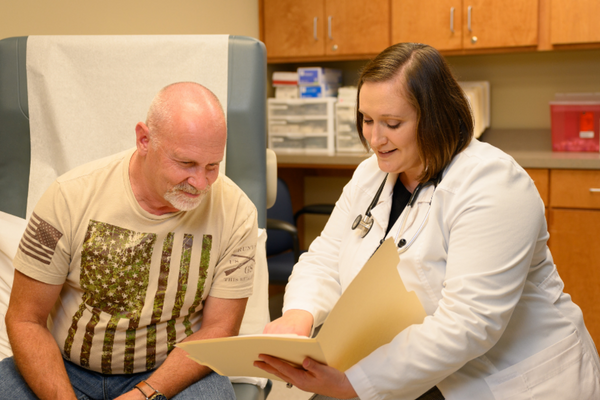Your genes determine factors like your hair and eye color, the shape of your nose and your body type. You might even have the same laugh as your mother or walk with the same gait as your father. While these types of things are easily seen by the naked eye, certain medical conditions your family members have may not be so easy to determine from just a glance. Your family health history can have a major impact on your overall health and wellness.
Reasons to Learn Your Family Health History
Along with genes, families also often share similar environments and lifestyles. When we take all these factors together, patterns of certain conditions or diseases that run in your family become more evident. Many of these conditions, such as heart disease, type 2 diabetes and even some types of cancer, have risk factors that can be addressed early on – if you know you’re more at risk.
This is why it’s important to learn as much as you can about your family health history. A family medical history is a record of health information about both your health and the health of your close relatives from the last three generations. These relatives include your parents, siblings, grandparents, aunts/uncles and cousins.
Keep in mind that just because a family member had a condition doesn’t mean you’re guaranteed to have it, too. However, being armed with this information can help you take the steps needed to reduce your risk by getting regular checkups, preventive tests or making healthy lifestyle changes.
Creating a Family Medical History
The more you know about your family history, the better. So, how do you compile all this vital information? Here are a few ways to get started:
Talk to family members. The first step is to find out if family members have any chronic conditions you should be aware of and ask about their lifestyle habits. Start the conversation by letting them know you’re compiling health information for your records, which you’ll be more than happy to share with them.
Keep notes of your findings. Document all your research so it is easy to share with your family members. Important things to note include your family members’ current ages, any medical conditions and the age at which they were diagnosed.
Make copies for your doctors. Along with sharing your research with your family, you should also make a copy to give to your physician and other healthcare providers as needed. Your doctor can assess your risk for the same diseases and recommend necessary changes to your lifestyle.
Take note of your overall health. Once you know what conditions are part of your family health history, you can start to pay more attention to your own health and note any symptoms that may seem out of the ordinary as time goes on.
Schedule preventive screenings. Based on your family history and the risks your doctor feels you’re facing, it may be recommended that you undergo certain screening tests for early detection. These tests can help you start any necessary treatment plans as soon as possible.
The ACV Health Difference
Learning about your family health history can help you make the right decisions for a healthy future. Whether you’re looking for primary care, preventative screenings or healthcare specialists, ACV Health offers comprehensive care in a convenient and familiar environment. At each appointment, you are welcomed with the warmth of a small doctor’s office while still receiving the scale of care available from a much larger office. Our services range from primary and specialty care to rehabilitation and an on-site pharmacy.
Call today to schedule an appointment – our friendly providers would love to speak with you.




